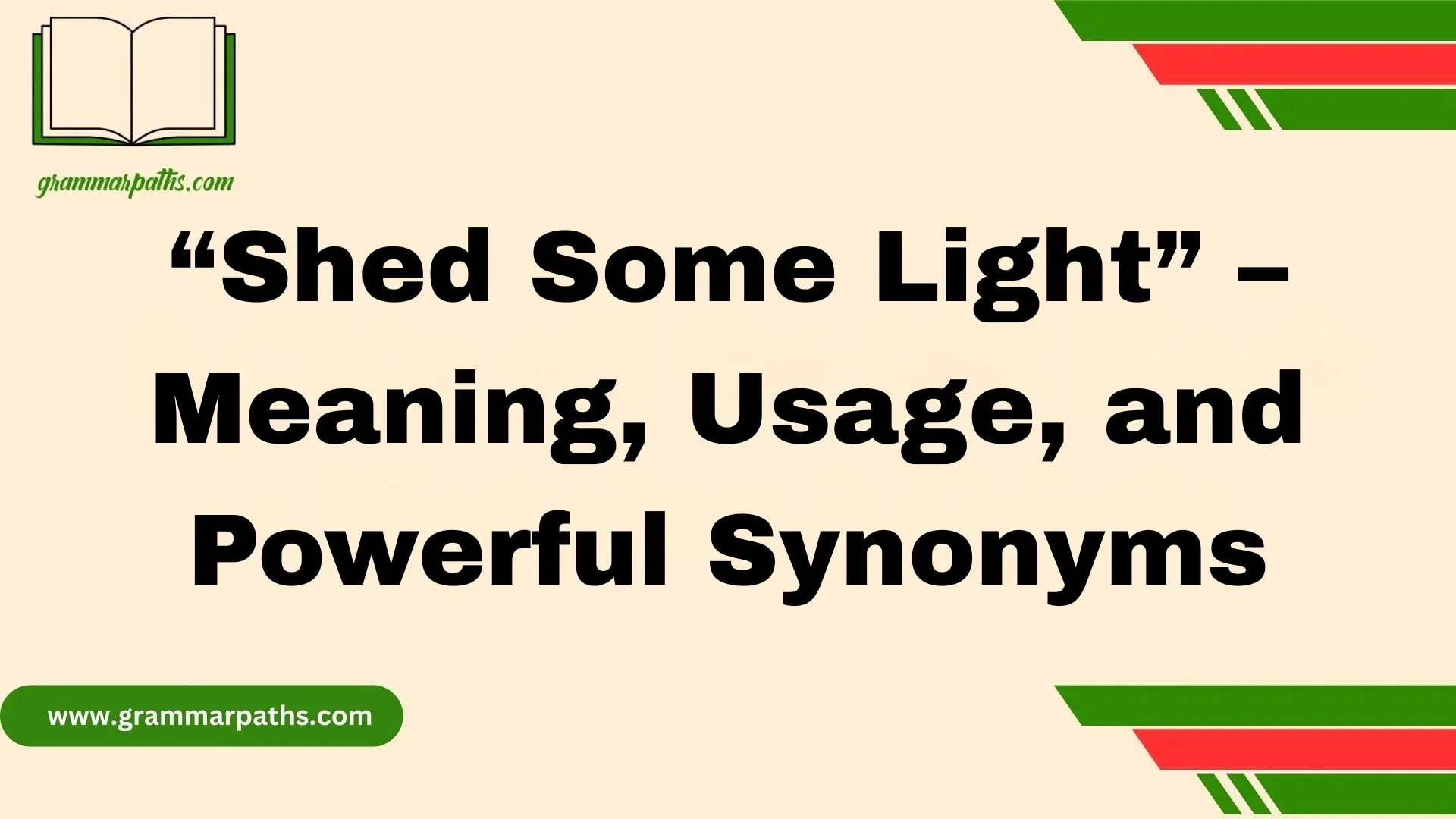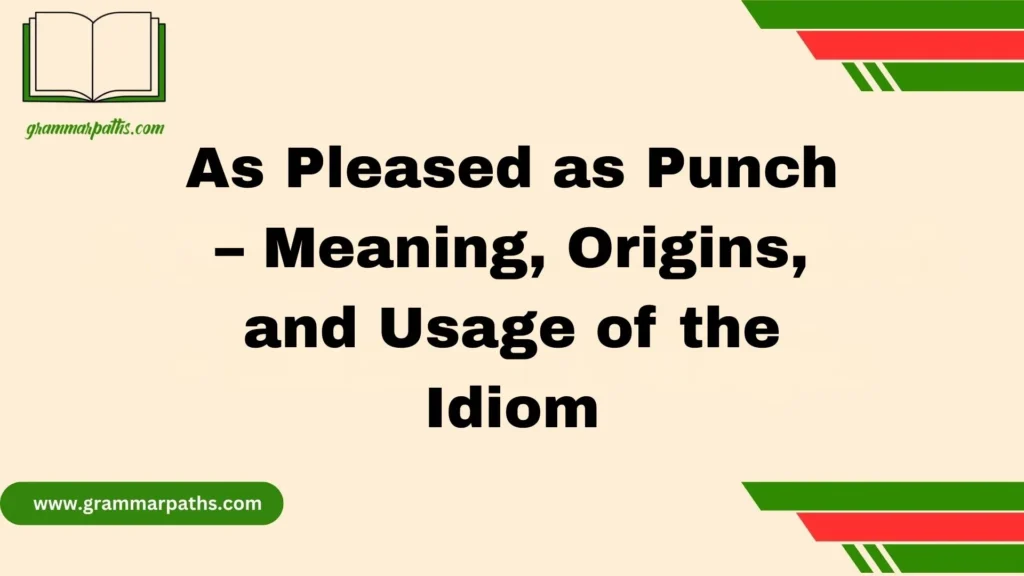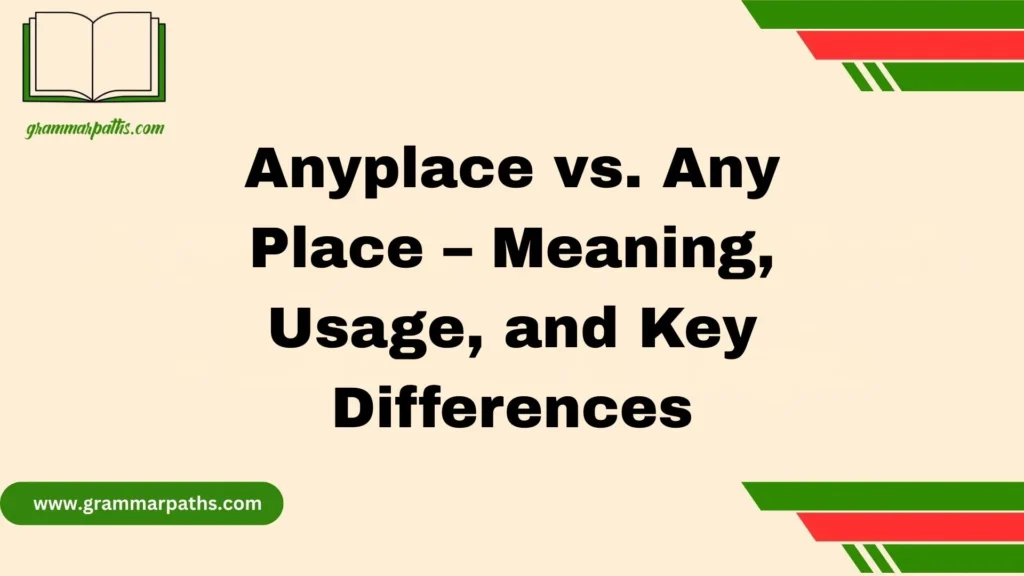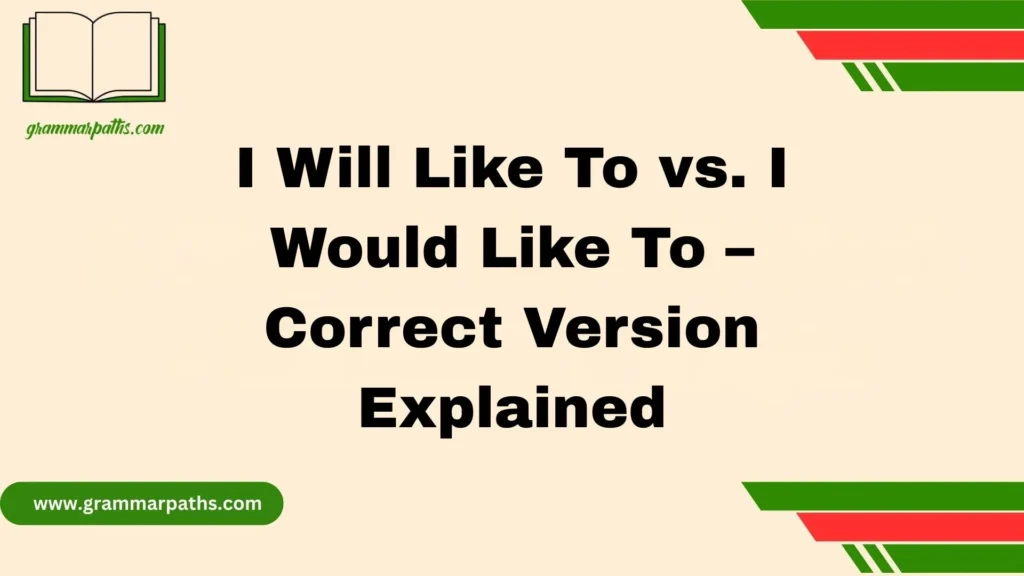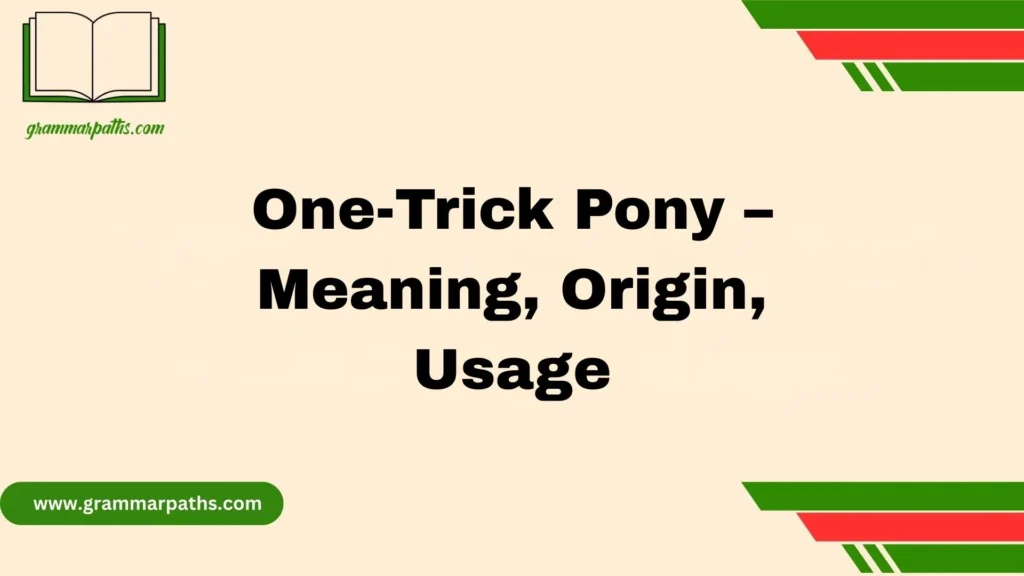“Shed Some Light” – Meaning & Synonyms isn’t just a catchy phrase—it’s a great way to bring clarity to a tricky topic. As someone who’s worked as a writer and editor, I’ve used this expression many times to help people understand complex ideas. Whether it’s explaining a mystery or breaking down dense theories, this idiom makes confusing things easier to see. It’s like using a flashlight to shine into a dark corner and suddenly everything becomes clear. It helps readers move from confusion to understanding, and it does that in a natural, graceful way.
This phrase originally came from actual light, but over time it’s become a strong metaphor in daily communication. It’s now used to illuminate difficult ideas, reveal emotional depth, and guide people toward better thinking. In my experience, it’s more than just a nice saying—it’s a practical, useful tool that helps you speak with intention. Knowing its meaning, how to explore it, and even using its synonyms can really help you grow your vocabulary and make your language more powerful and relevant.
What Does “Shed Some Light” Actually Mean?
At its heart, “shed some light” means to explain or make something clearer. It’s a metaphor, comparing understanding to light. Just like light helps us see things more clearly, explanations help us understand situations, problems, or ideas better.
It’s typically used when something is confusing, mysterious, or unknown.
Examples:
- “Can you shed some light on this contract clause?”
- “The investigation shed light on the company’s hidden expenses.”
- “She shed some light on how the algorithm works.”
Tone and Usage:
- It’s neutral to formal in tone.
- Works well in emails, essays, meetings, and reports.
- Often used with phrases like “on this,” “into,” “about,” or “regarding.”
Where Did the Phrase Come From?
The idiom dates back to the 1600s, when the idea of light representing knowledge or truth became popular in Western thought. From religious texts to scientific literature, light has long symbolized clarity, insight, and wisdom.
Back in the days before electric lights, people depended on candles and lanterns—so “shedding light” was literally how they revealed what was hidden in darkness.
Historical Highlights:
- In early literature, to “shed light” often meant to reveal truth.
- The phrase became popular in academic and legal writing during the Enlightenment.
- Today, it’s used across business, media, education, and casual speech.
Real-Life Situations Where “Shed Some Light” Is Used
This idiom works in a surprising number of settings. Let’s break it down by situation.
| Context | Example Sentence | Purpose |
| Workplace | “Can you shed some light on last quarter’s sales drop?” | Requesting clarification |
| Academic | “The study sheds light on early childhood development.” | Presenting new findings |
| Legal/Politics | “The leaked documents shed light on the unethical practices.” | Revealing hidden or secret information |
| Everyday Talk | “Can you shed some light on what went wrong?” | Asking someone to explain |
| Tech Support | “This article sheds light on how to reset your device.” | Offering helpful instructions |
What Does “Shed Some Light” Look Like in Grammar?
This idiom acts as a verb phrase. It can be used in multiple tenses, like this:
- Present Simple: She sheds light on complex issues.
- Past Simple: He shed light on what really happened.
- Present Continuous: We are shedding light on the matter.
- Perfect Tense: They have shed light on new findings.
Be careful: the past tense of “shed” is still “shed.” It’s an irregular verb.
Strong Synonyms for “Shed Some Light” (With Nuance)
Now, let’s talk vocabulary. Sometimes, “shed some light” is perfect. But at other times, a more precise or vivid word does the job better.
Here are powerful synonyms, broken down by tone and use:
Clear, Formal Alternatives:
- Clarify – Make something less confusing
Example: “Could you clarify your point?” - Illuminate – Provide insight or explain thoroughly
Example: “Her research illuminates the causes of inflation.” - Demystify – Make a complicated idea simple
Example: “This article demystifies cryptocurrency.”
Visual/Metaphorical Synonyms:
- Shine a light on – Explore something carefully
Example: “The podcast shines a light on corruption.” - Bring to light – Reveal something hidden
Example: “The audit brought several issues to light.” - Uncover – Find something previously unknown
Example: “He uncovered key evidence in the case.”
Conversational or Informal:
- Clear things up
- Explain
- Make sense of
- Break down (e.g., “Break it down for me”)
Comparison Table of Synonyms
| Synonym | Tone | Best Use Case |
| Clarify | Neutral/Formal | General communication |
| Illuminate | Academic/Professional | Deep insight into complex topics |
| Demystify | Friendly/Instructional | Explaining technical or tricky ideas |
| Bring to light | Formal/Investigative | Revealing secrets, new information |
| Shine a light on | Neutral | Emphasizing attention or awareness |
| Clear things up | Casual | Everyday conversations |
Choosing the Right Synonym Based on Context
Every word carries a tone. Using “shed some light” in a casual chat can sound stiff. On the flip side, saying “clear it up” in a formal meeting might feel too casual.
Here’s how to decide:
| Setting | Recommended Term |
| Business Email | Clarify, shed some light |
| Academic Paper | Illuminate, explain |
| Technical Manual | Demystify, break down |
| Journalism | Bring to light, uncover |
| Conversation | Clear up, make sense of |
Examples of “Shed Some Light” in Action
Example 1: Professional Setting
Before: “This report shows the problem.”
After: “This report sheds light on the root causes of the problem.”
Example 2: News Article
Original: “New data released today.”
Revised: “The new data sheds light on rising rent costs across major cities.”
Example 3: Education
Before: “The teacher explained the topic.”
After: “The teacher shed light on a confusing concept using real-world examples.”
Expert Tip: How to Sound Smarter Using This Phrase
To stand out in writing or speech:
- Pair it with specifics
Weak: “Can you shed some light?”
Stronger: “Can you shed some light on why the project stalled?” - Avoid overuse
Use alternatives throughout your writing to keep things fresh. - Use rhetorical layering
Example: “While the first draft only skimmed the surface, her final report shed light on every critical issue.”
When Not to Use “Shed Some Light”
There are a few traps to avoid.
Common Mistakes:
- Overuse in a short space: Repeating “shed some light” 3 times in one paragraph? It starts to feel forced.
- Mixing metaphors: “Can you shed light on the elephant in the room?” → That’s confusing.
- Using it too literally: ESL learners sometimes think it refers to real light. Not the case!
Quick Reference Table: “Shed Some Light” Overview
| Feature | Details |
| Meaning | To explain, clarify, or make something understood |
| Part of Speech | Verb phrase |
| Tone | Neutral to formal |
| Common Synonyms | Clarify, explain, demystify, bring to light |
| Contexts Used | Business, writing, conversations, education |
| Grammar Note | Irregular verb (past tense = shed) |
| Avoid | Overuse, cliché phrases, confusing mixed metaphors |
Conclusion
The idiom “shed some light” has become more than just a clever phrase—it’s a way to bring clarity, offer insight, and improve everyday communication. Whether you’re a student, a professional, or simply someone trying to explain a tricky idea, this expression helps turn confusion into understanding.
From its literal roots in actual light to its modern use as a metaphor, it continues to be a relevant and practical part of the English language. Using it intentionally can strengthen your voice, expand your vocabulary, and help others see your message more clearly.
FAQs About “Shed Some Light”
Q1: What does “shed some light” actually mean?
A: It means to help explain something, make it clearer, or reveal the truth about a confusing or hidden topic.
Q2: Is “shed some light” used literally or figuratively?
A: It was originally literal (about real light), but now it’s mostly used figuratively to mean providing clarity or understanding.
Q3: Can you use “shed some light” in formal writing?
A: Yes! It’s appropriate for both formal and casual use, especially when explaining complex topics or ideas.
Q4: What are some synonyms for “shed some light”?
A: Common synonyms include: clarify, explain, illuminate, reveal, elaborate, uncover, and bring to light.
Q5: How can I use “shed some light” in a sentence?
A: Here’s an example:
“The professor shed some light on the confusing theory, making it easier for students to grasp.”
Q6: Why is it important to know idioms like this one?
A: Knowing idioms like “shed some light” helps you sound more natural, thoughtful, and expressive in both speaking and writing.

Mia Rose is the passionate writer and founder of GrammarPaths.com, a resource dedicated to helping learners master English grammar, idioms, and writing skills with ease. With a deep love for language and years of experience in teaching and content creation, Mia simplifies complex grammar rules into clear, practical guides that readers can instantly apply.
